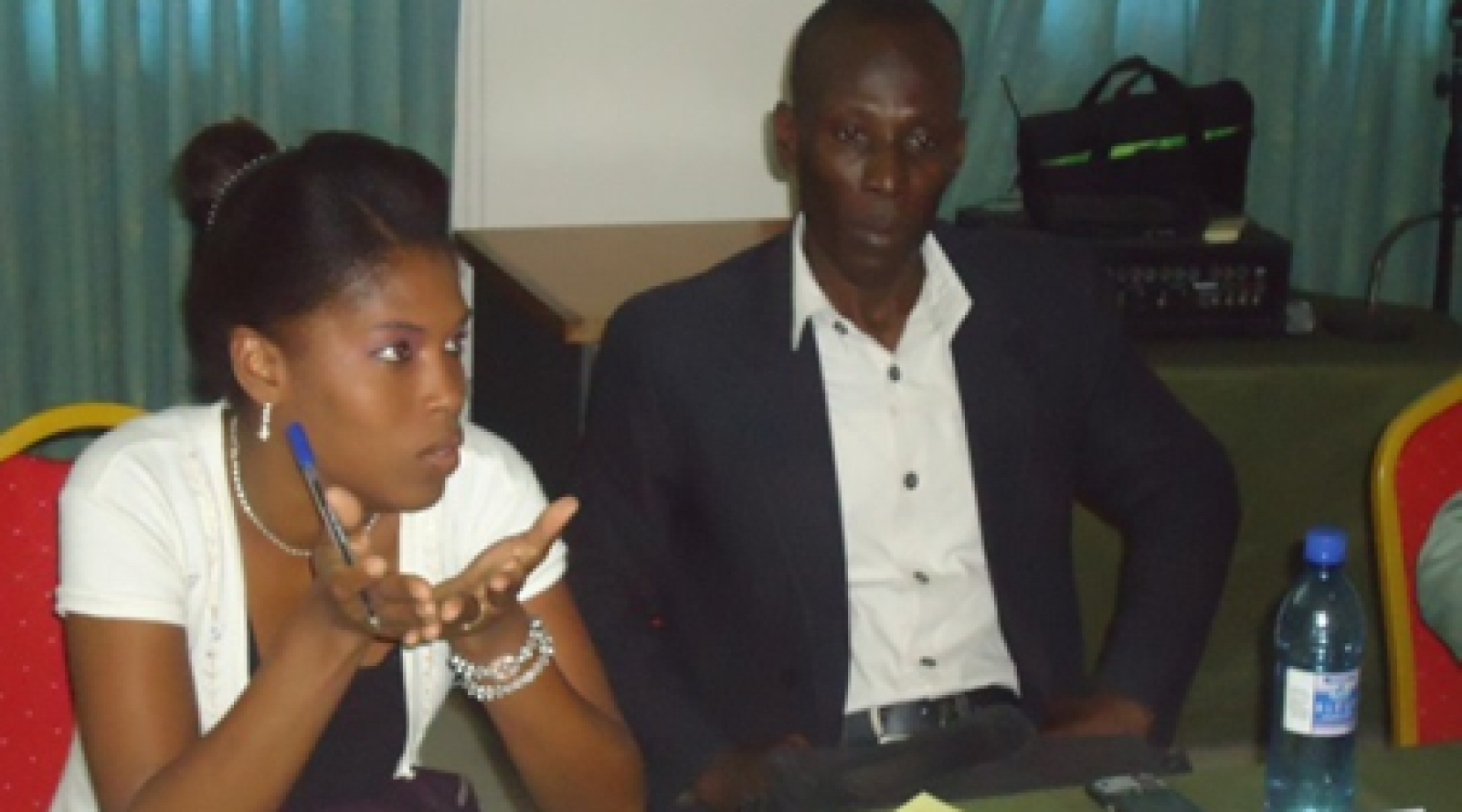
SHARE
Haiti’s fragile democracy has struggled with a host of political and economic challenges since the fall of the Duvalier family dictatorship in 1986, and elections have often been flash points for hostilities. In 2010, disputes over preliminary presidential election results caused violence to erupt across the country.
Young people—who make up about 70 percent of the population—are disproportionately caught up in politically-motivated conflict, mostly due to systemic challenges like endemic poverty and high unemployment. As Haiti heads toward national elections this year, young political party and community activists, recognizing the power in their numbers, are coming together to advocate against political violence and promote peaceful elections.
In 2013, NDI organized three forums for nearly 70 youth from throughout the country to help them help them design an anti-violence campaign. The participants included students, youth community activists and youth representatives from 10 political parties across the political spectrum.
During the forums, participants reflected on the consequences of electoral violence, including the harmful effects it has on economic growth. Despite their different backgrounds, the participating youth agreed on the importance of promoting peaceful elections through regional meetings with community leaders, local radio broadcasts and social media as part of a coordinated anti-violence campaign.
NDI invited local journalists and business leaders to speak with the young people on the impact of electoral violence, including its destabilizing effects on Haitian politics and harm to the local economy. Participants recognized the link between peace, jobs and development, and used that as a key message for their anti-violence campaign.
To kick off the campaign, the youth organized regional youth groups and reached out to civic and religious leaders in their communities to engage in dialogue on peaceful elections and raise awareness about the costs of politically-motivated violence. They created a Facebook page to promote their campaign, particularly among other youth. The page has nearly 24,000 likes. The youth also collected signatures and used mass text messaging to gather support for a pledge for peaceful elections, for which they have collected nearly 10,000 signatures. The youth are currently seeking a partnership with local businesses to step up the campaign once an election date has been set. They have planned public forums, radio jingles and posters promoting peaceful elections, and civic education among youth, all of which can be implemented in the period immediately prior to elections, which is particularly susceptible to escalating conflict.
Some of the youth activists who participated in the forums are currently exploring ways to expand the anti-violence campaign within their parties. “Even though our country faces political challenges, I have great optimism for the future,” said one activist who participated in the forums and helped promote the anti-violence campaign.
NDI is now organizing a series of meetings with the party youth representatives that will allow them to reach out to other youth and future candidates within their parties to bring them into the campaign and gain their support in promoting peaceful elections. In particular, NDI and the party youth will encourage parties to sign onto a “Code of Conduct” that pledges participants to conduct non-violent campaigns and resolve election disputes through legal channels. The youth activists will help promote the code at the national and local level. To support these efforts, NDI will also assist in the development of a guide on strategies to mitigate conflict through dialogue, which can be shared with community leaders across Haiti.
Participating parties include the National Gathering of Progressive Democrats (Rassemblement des Démocrates Nationaux Progressistes, RDNP), the Grand Gathering for the Evolution of Haiti (Grand Rassemblement pour l’Evolution d'Haïti, GREH), Haitian Party Tèt Kale (Parti Haïtien Tèt Kale, PHTK), the Liberation Platform (Plateforme Libération), Artibonite in Action (L’Atibonit an Aksyon, AAA), Fanmi Lavalas, the Unity Party (INITE), Fusion of Haitian Social Democrats (Fusion des Sociaux-Démocrates Haïtiens, FUSION), the Organization of People in Struggle (Organisation du Peuple en Lutte, OPL) and Respect (Regwoupman Sitwayen Pou Espwa, RESPE).
Read more:
- Local Haitian Groups Push Government to Help Improve Life in Their Communities»
- International Visitors Share Experiences on Organizing Debates»
- Citizen Development Roadmaps Gain Lawmakers' Attention in Haiti»
Published March 24, 2014


